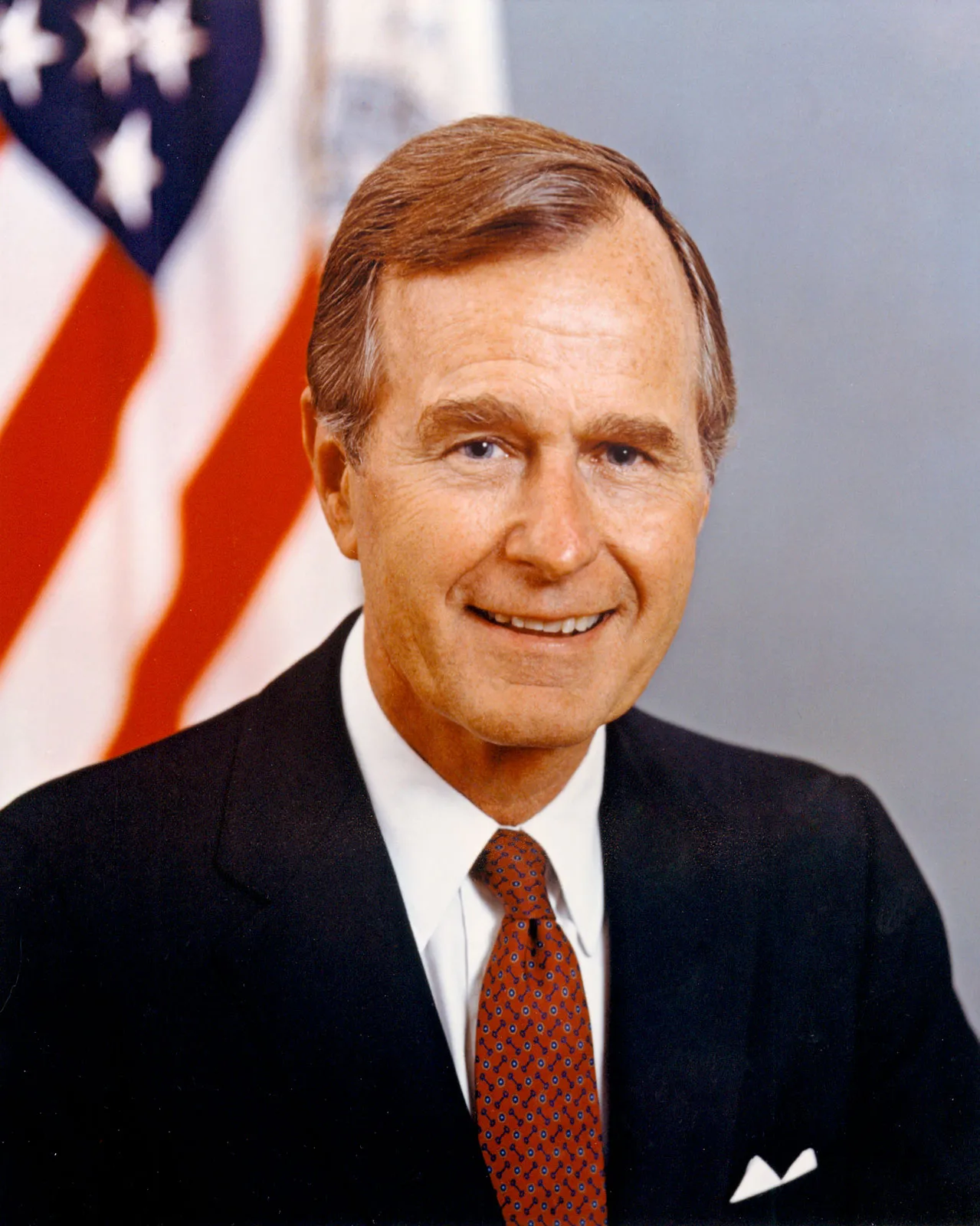
Early Life and Pre‑Political Career
George H. W. Bush was born on June 12, 1924, in Milton, Massachusetts, into a family with deep roots in public service.
On his 18th birthday, he enlisted in the U.S. Navy and became one of the youngest naval aviators during World War II, flying combat missions in the Pacific.
After the war, he attended Yale University and entered the oil business in Texas before beginning a political career.
Political Rise
Bush’s public service career included terms as a U.S. congressman, U.S. ambassador to the United Nations, chairman of the Republican National Committee, envoy to China, and Director of the CIA.
From 1981 to 1989, he served as vice president under Ronald Reagan, gaining experience and national visibility.
Presidency (1989–1993)
Foreign Policy & Global Events
-
End of the Cold War & Soviet dissolution
As Bush entered office, the political landscape in Eastern Europe was rapidly shifting. He managed the U.S. response to the fall of the Berlin Wall and the dissolution of the Soviet Union with a cautious but steady diplomatic approach.
He avoided triumphalism to maintain stability during transitions in the former Soviet space. -
Gulf War and Middle East engagement
In response to Iraq’s invasion of Kuwait in 1990, Bush assembled a broad international coalition under U.N. sanction to expel Iraqi forces. The subsequent Operation Desert Storm successfully restored Kuwait’s sovereignty.
His coalition-building and military action were admired, and his popularity soared to near 90% afterward. -
Other foreign initiatives
In the final weeks of his presidency, he sent troops to Somalia in a humanitarian mission to stabilize conflict zones and protect food supplies.
Domestic Policy & Challenges
-
Economic difficulties & broken tax pledge
Despite initial popularity, the U.S. economy slowed, and Bush faced a recession in 1990.
His famous campaign line “Read my lips: no new taxes” became politically costly when he reneged on it in 1990 through a budget deal with Congress. -
Domestic legislation & policy efforts
Bush signed important civil rights legislation, like the Americans with Disabilities Act (ADA), and environmental amendments, especially to the Clean Air Act.
He also promoted the “Points of Light” volunteer initiative to encourage civic engagement and citizen service. -
1992 election defeat
Weighed down by economic troubles and his tax reversal, Bush lost his bid for a second term to Bill Clinton.
Post‑Presidential Life and Legacy
Following his presidency, Bush remained active in charitable causes with his wife Barbara, including disaster relief and humanitarian efforts.
He passed away on November 30, 2018, at age 94.
George H. W. Bush is often remembered for his statesmanship, humility, and emphasis on diplomacy. He played pivotal roles during transformative global events while striving for civility in public life.

You must be logged in to post a comment.